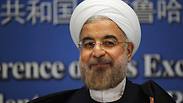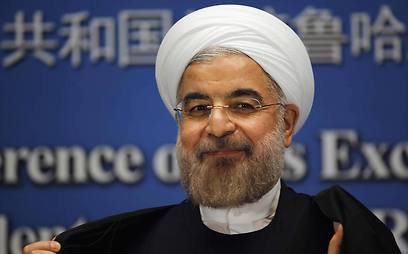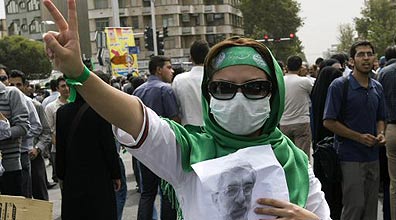
An Israeli poll of Iranians has found that more than half – 54 percent – would be willing to give up some or all aspects of the country's nuclear program, in return for an end to the crippling sanctions imposed by the international community.
According to the survey, 40 percent of Iranians would be willing to give up on the ability to produce nuclear weapons in the future, while another 9 percent said they would drop any civilian nuclear program, and a further 5 percent expressed readiness to abandon all aspects of the nuclear program, if it meant an end to sanctions. The poll found that 81 percent of Iranians believe that their lives would be improved by an end to the sanctions.
The findings are part of a survey of public opinion in Iran conducted by phone by the Institute for Policy and Strategy (IPS) at the Interdisciplinary Center Herzliya. It was led by Professor Alex Mintz, the head of the IPS and dean of the IDC's Lauder School of Government, Diplomacy & Strategy. The poll was conducted ahead of the school's prestigious annual Herzliya Conference, which begins Sunday.
Related Stories
- UN probe of Iran nuke program may slow Iran talks
-
West prods Iran to speed up cooperation with IAEA inquiry
The survey also showed that close to 40 percent of Iranians believe the Islamic Republic should recognize Israel if it signs a peace agreement with the Palestinian and withdraws from "Palestinian areas".
Furthermore, the survey showed, 70 percent of Iranians expressed some form of support for the ongoing talks between Tehran and the West over Iran's nuclear program. Conversely, just 11 percent of Iranians said they were against the talks.
The survey also reveals a complex perspective in terms of relations with the United States. While 40 percent of respondents named the US as Iran's greatest enemy, 74 percent backed the renewal of diplomatic and trade relations with the US, which ended following the 1979 Islamic revolution. Just 32 percent, meanwhile, said that Israel was Iran's greatest enemy. Six percent said that Iran had no enemies in the world, while another six percent named Iran itself.
In terms of friendly nations, 35 percent cited Syria as Iran's biggest ally in the Middle East, while 14 percent named Lebanon. No respondents mentioned the Palestinians, and 15 percent indicated that Iran had no regional allies.
The poll was conducted by questioners who made no mention of Israel.
"We said we were calling from a research center," Mintz told the New York Times. "Most didn't ask for details. To those who did, we said an institute for policy and strategy. Nobody imagined we were phoning from Israel."

The professor called the results "encouraging", adding that most Iranians seemed to be concerned first and foremost with their economic wellbeing. "People spoke about their problems, about how much they were suffering from the sanctions, about how hard life is for them," an unnamed member of the polling team told the Times.
The survey questioned 530 random Iranian civilians by phone in May, reportedly with the help of several Farsi-speaking Israelis with Iranian backgrounds.
"There is a lot of news in Israel about what the Iranians think and want, but nobody asked them," Mintz told the Times.
















